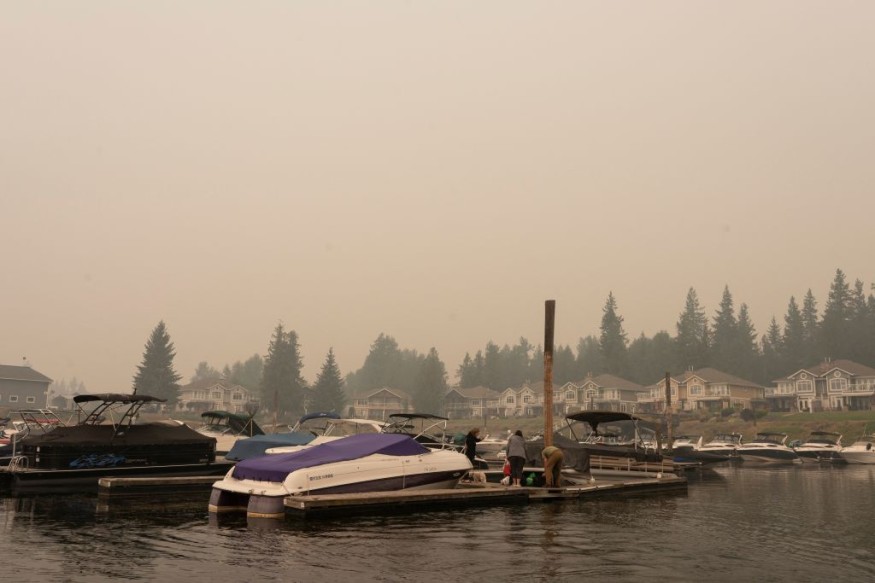According to the latest forecasts, wildfire smoke concerns were issued in Northwest Territories, N.W.T and Yellowknife.
Poor air quality can raise health concerns for affected communities. Older adults and people with medical conditions are at risk of the southern fire smoke.
Canada's Fire Brings Poor Air Quality

The recent reports showed that the Northern Alberta fire brought alarming smoke in portions of Yellowknife and N.W.T communities last weekend.
Northwest Territories also noticed the poor air quality due to smoke in the skies. Based on the report, the air quality concerns emerged in the following areas:
- North Slave areas
- South Slave regions
- Dehcho communities
- Northwest Territories
- Yellowknife
Furthermore, the alarming wildfires in Canada affected the species in the forests. Forests are home to many species in Canada, which could significantly impact their survival and food sources.
The frequency of wildfires can make the burned forests super-emitters, causing more environmental concerns. The heavy smoke will bring health impacts and worsen the possible effects of climate change in Canada and nearby communities.
Furthermore, climate change and the arrival of El Nino can likely worsen the fire concerns. Climate change can cause rapid intensification of wildfires due to lack of rain, prolonged drought and dry vegetation.
The dry conditions and high temperatures are more favorable for wildfires to emerge.
Read also: Australia El Nino in September: Challenging Heat to Bring Potential Health Risk, Fire Concerns
Keeping safe from challenging wildfires
Recent reports showed the emergence of wildfires in parts of Canada and the dangers of wildfire smoke affecting human health and the environment. Massive wildfires can spark in an instant, leaving significant damage to lives and communities.
Climate change can cause the frequency of bushfires and wildfires. The dry conditions and vegetation can become favorable to increase the concerns of fires. In addition, wildfires can also become human-caused.
Here are essential reminders to keep safe from potential wildfires. Preparation is necessary to prevent possible injuries and damages.
Always check the latest weather forecasts and wildfire reports.
Homeowners near wildfire-prone areas should stay updated with the heat and weather reports, helping them become more prepared for wildfire disasters.
In addition, keeping battery-operated radios is also essential when there are power outages near your area.
Help to prevent human-caused fires.
Avoiding flammable materials can prevent fires when you are in the forests or camp. People should keep turning off their engines and immediately avoid dry grass.
Equipment can also spark a potential fire, especially in dry vegetation areas. In your house, homeowners can throw leaves in proper locations. Trimming shrubs and bushes are also recommendable.
Check air quality when a fire occurs.
Wildfire smoke can cause smoke, causing reduced and unhealthy air quality. Poor air quality can bring health risks, especially for older adults, children and people with medical conditions.
Related Article : Higher Air Pollution Found in Chicago's Western Edge; Health Concerns Likely to Increase
For more similar stories, don't forget to follow Nature World News.
© 2026 NatureWorldNews.com All rights reserved. Do not reproduce without permission.





